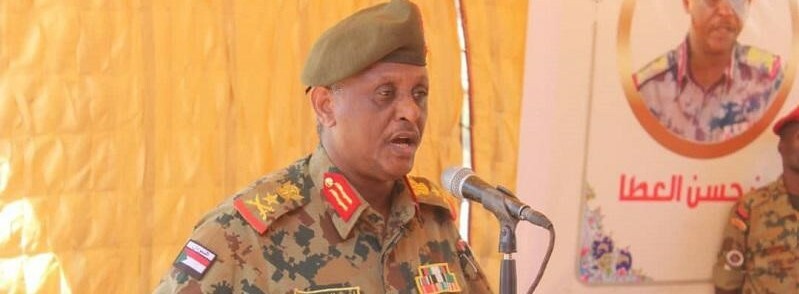Lieutenant General Yasser Al-Atta, Assistant to the General Commander of the Armed Forces and member of the Sudanese Sovereign Council, has accused UAE President Mohammed bin Zayed Al Nahyan of orchestrating the ongoing war in Sudan to further his interests in the country. Al-Atta alleges that Bin Zayed’s support for the conflict stems from his desire to exploit Sudanese agricultural lands, seaports, and mineral resources.
Speaking before officers and soldiers in Sinnar on Tuesday, Al-Atta asserted, “Bin Zayed, in pursuit of his ambitions, ‘bought the Janjaweed militia’ and provided significant support with the assistance of the Russian Wagner Mafia, whom he described as criminal.”
Furthermore, Al-Atta accused leaders of neighboring countries of colluding with the UAE President, stating, “There are also regional mafias involved in this conspiracy. Mohammed bin Zayed has bought the loyalty of several heads of neighboring countries, ministers, influential figures, as well as some influential regional and international organizations, to advance his criminal agenda.”
Al-Atta launched a scathing attack on Bin Zayed, alleging his involvement in destruction across Yemen, Syria, and Libya. He claimed that Bin Zayed’s actions have also negatively impacted Somalia and led to tensions in Eritrea and Djibouti, the latter two countries reportedly expelling him due to perceived threats.
It’s important to highlight that Al-Atta’s recent criticism of the UAE and its president isn’t the first instance of such condemnation. In December of the previous year, Al-Atta had similarly launched an attack on the UAE, alleging their provision of weapons to the Rapid Support Forces (RSF), sparking a diplomatic rift between the two nations. This escalation resulted in mutual expulsions of diplomatic representatives.
While reports have implicated the UAE in arming the RSF, Al-Atta’s statements mark a significant departure as they are the first of their kind from Sudanese government officials. Despite these accusations, the UAE has consistently denied any involvement in Sudanese conflicts, a stance backed by UN experts who reported to the Security Council.
In its response to the Security Council, the UAE reiterated its position, emphasizing its humanitarian efforts in the region. These include operating aid flights and establishing a hospital in Chad to support those affected by the conflict in Darfur.




